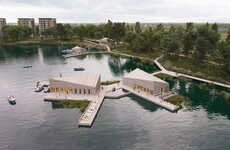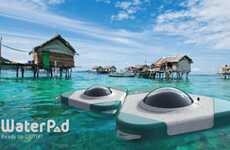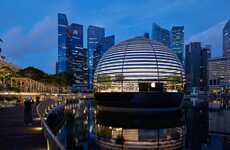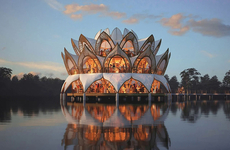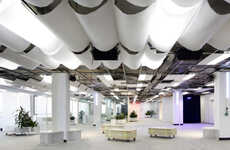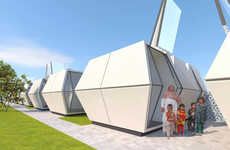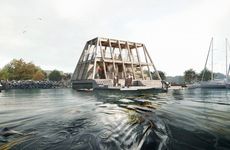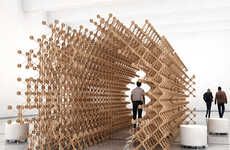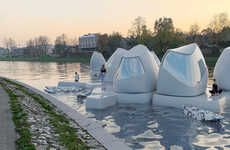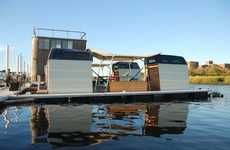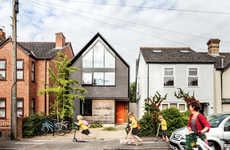
SPARK Architects' Floating Hawker Centre Would House a Number of Vendors
Alyson Wyers — August 27, 2014 — Art & Design
References: mymodernmet
A new floating hawker centre proposed by SPARK Architects resembles a bunch of futuristic floating lily pads. The architecture firm hopes their Solar Orchid project will bring pop-up shops and restaurants to the Singapore waterfront. The pod-like structures would aid in revitalizing the area, which has a "street food heritage," as it can house a number of different retailers and restaurants.
The reconfigurable floating hawker centre would be mobile and sustainable, with a solar canopy. The cooked-food centre would allow different vendors to come in, while the modular quality of the pods allow them to be moved and re-arranged. The buoyant compartmentalized areas are self-contained as well, each having its own built-in exhaust, electrical, gas, water, waste collection, table settings and water recycling services.
The reconfigurable floating hawker centre would be mobile and sustainable, with a solar canopy. The cooked-food centre would allow different vendors to come in, while the modular quality of the pods allow them to be moved and re-arranged. The buoyant compartmentalized areas are self-contained as well, each having its own built-in exhaust, electrical, gas, water, waste collection, table settings and water recycling services.
Trend Themes
1. Modular Floating Structures - There is an opportunity for companies to create more efficient, sustainable and mobile modular floating structures that can be adapted to different environments and be repurposed for various usage.
2. Pop-up Food Markets - The idea of pop-up shops and restaurants tied together with a unique vibe is an excellent showcase for emerging food concepts and innovative ideas. A trend towards sustainable and eco-friendly mobile food markets aiming to take over traditional stationary food halls looks promising.
3. Sustainable Urban Development - The increase in economic and urban population growth has led to the growth of commuter populations. Sustainable urban developments can meet the increasing demand for comfortable living while minimizing the effect of human activity on the ecosystem. More eco-friendly and innovative urban solutions could also benefit developing countries where there is a lack of traditional infrastructure for cooking and dining.
Industry Implications
1. Hospitality - The hospitality industry can take advantage of this trend by creating new kinds of restaurants and cafes fueled by planet-consciousness, mobile solutions, and innovative design.
2. Real Estate - The construction and real estate market can benefit from developing modular structures, making them more energy efficient, self-sustainable, producing unique design systems that can attract more tenants, and enhance property values for urban users.
3. Sustainable Food Production and Distribution - The trend for sustainable food production and distribution continues to grow rapidly. There is an opportunity for food suppliers to revolutionize the way food is produced and distributed around urban centers, expand their businesses, and align with consumers in changing urban environments.
1.7
Score
Popularity
Activity
Freshness

